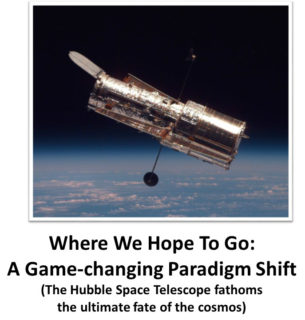A few days ago, a student sent me the following email.
I saw this article online just now. VERY odd. I’d love to learn of your thoughts about it if you have any to share: ‘Mindfulness’ is a Meaningless Word with Shoddy Science Behind It.
My response:
Here’s what I have to say about that. Newsweek.com is a meaningless word with shoddy journalism behind it.
Let me explain. There’s a difference between the culture of journalism and the culture of science. An easy (and unfair) way to highlight that difference is for me to do something that I personally loathe—compare their worst to our best. 🙂
The culture of journalism at its worst is about getting people’s attention, even if it means stating things in an unnuanced, distorted, and inflammatory way. The culture of science at its best works for the opposite values: fine-grained analysis based on thorough discussion and respectful disagreement. So, their worst: Clever click bait. Our best: Collegial debate.
If you look at the actual articles cited by Newsweek.com, you’ll see that in fact they are written by experts in the mindfulness field, several of whom are committed practitioners — indeed, friends and colleagues of mine. Moreover, some of the points mentioned in those articles are things that I’ve been screaming from my soapbox for years.
Here are the main original article citations:
Van Dam, N.T. et al. Mind the Hype: A Critical Evaluation and Prescriptive Agenda for Research on Mindfulness and Meditation. Perspectives on Psychological Science. First published date: October-10-2017
Davidson, R.J. and C.J. Dahl. Outstanding Challenges in Scientific Research on Mindfulness and Meditation. Perspectives on Psychological Science. First published date: October-10-2017
Van Dam, N.T. et al. Reiterated Concerns and Further Challenges for Mindfulness and Meditation Research: A Reply to Davidson and Dahl. Perspectives on Psychological Science. First published date: October-10-2017
In terms of journalism, here’s a better article. It sticks more closely to what the researchers are actually saying.
If you’re interested in my personal take on all this, you can check out my manifesto What is Mindfulness?
So once again, it’s all about expansion and contraction. As the mindfulness meme becomes more ubiquitous, there’s going to be irresponsible hype and also irresponsible counter-hype. Hopefully in the end, both forms of irresponsibility will cancel out, leaving a deep and helpful truth in the service of our humanity.
Here’s a visual summary of how I view the field of contemplative neuroscience.

